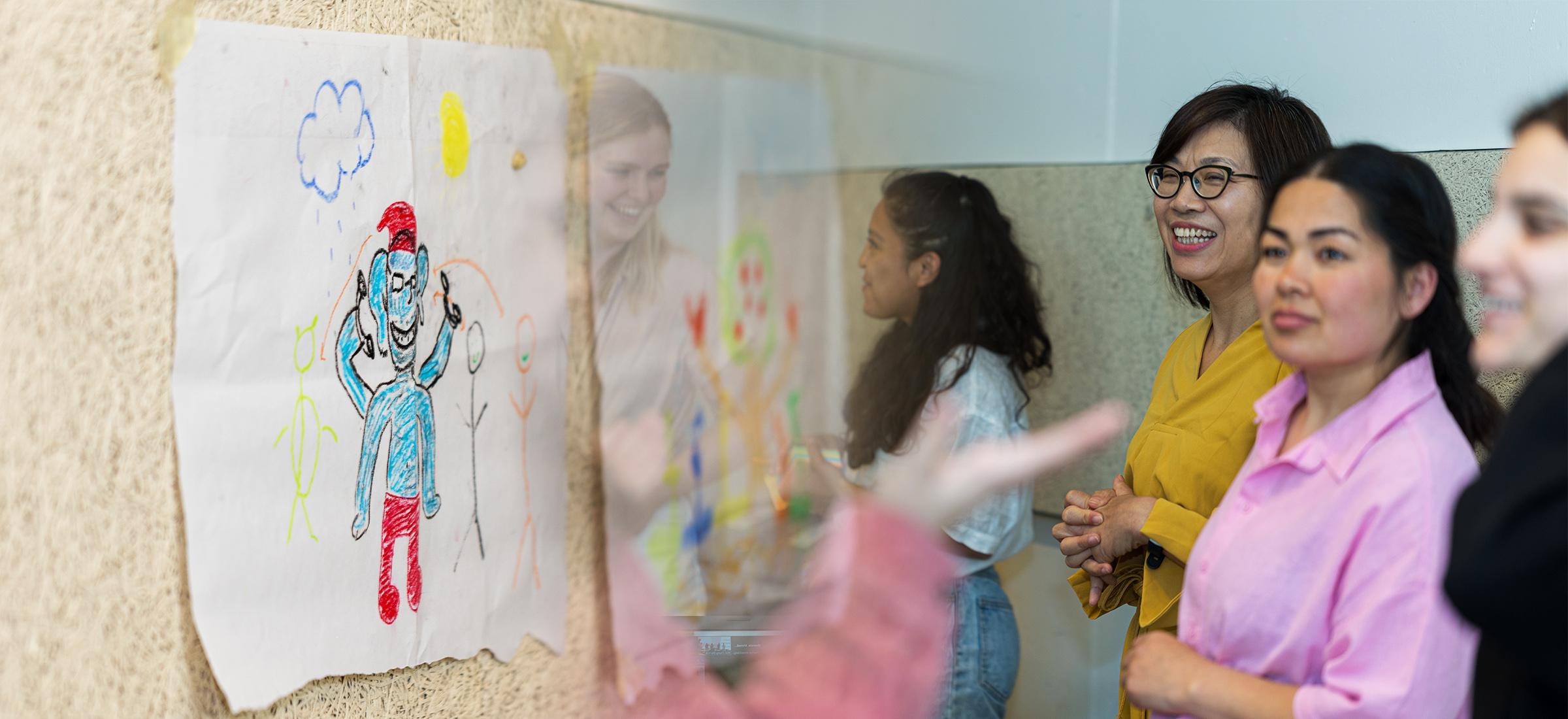
Educational quality of the programme
At VUB the quality of the education takes centre stage. This isn't something we say lightly: we scrutinise our programmes regularly to align them with changing student needs in a rapidly changing society.
This public information is part of VUB’s quality assurance system. The official Dutch version was ratified by the Academic Council on 27/03/2023. Below is a translation.
Strenghts
- International context: The master in Educational Sciences is unique in the learning environment it provides together with the Dutch-taught master in onderwijskunde. The collective mix of international and Belgian students and staff provides valuable and rich exchanges and educational perspectives to the programme courses. Several courses explicitly use the diverse student population and teaching staff as a starting point for educational debates and discussions during classes.
- Self-regulated learning and autonomy: students appreciate the flexibility in the teaching approaches. Blended teaching and e-learning allow students to work independently and take control of their own learning. Students develop self-regulating competences in the process.
- Internship: the programme offers a comprehensive internship that ensures that students gain diverse practical knowledge in the pedagogical and educational field, at home and abroad.
- Focus on collaboration: the programme encourages project-based (group) assignments in various ways: through group work between students and discussions, both online and in class, ideas are exchanged with fellow students and lecturers. This ensures that students engage more and more deeply with the learning content. Thanks to collaborations with external partners and external professionals, students get in contact with community engaged education (Community Engaged Research & Learning, CERL).
Opportunities
- Opportunities after graduation: more attention could be given to clarifying career options. Given the wide variety of possible jobs, these should be addressed more explicitly during the programme.
- Feedback: students have frequent opportunities to receive feedback on their work, both mid-term and after exams. The programme aims to offer these forms of feedback uniformly for all subjects so that students receive more and timely feedback on assignments in order to further improve their learning.
- Language: in the Educational Sciences master's programme, English is the main language. More effort could be made to ensure that all communication at departmental, faculty and university level is also in English, to allow non-Dutch-speaking students to participate in the institution at different levels. This will prevent student groups from feeling excluded and unable to participate in certain activities.
What is the programme working on now?
- Curriculum redesign: the course council recently (in academic year 2022-2023) implemented a reformed programme, with a focus on themes of educational change, self-regulated learning and emerging educational technologies.
- Research skills: The programme sharpened students' research skills by adding an additional course on data analysis to the curriculum.
- Partnerships: The programme wishes to make a more explicit link between the research topics and expertise of the lecturers and the topics covered in the courses, as well as in the collaboration opportunities with partner organisations. The expertise within the programme in change processes in teaching and technological learning environments are valuable for the curriculum and for society (e.g. through society-involved research and teaching initiatives).
- Alignment of course content: the educational staff organises regular substantive consultations - among the staff and with students, alumni and professional representatives - to maximise alignment of the theoretical content of the programme and their distribution across courses and master years.
Where do we get this information from?
As institution we routinely ask our students to give their honest opinion about the study programme during their academic career. We also consult our professors and assistants and gauge the expectations in the future field of work. We receive structured feedback from our former students and compare our programmes with others at home and abroad. Through a Peer Review every six years an expert panel endorses the programme’s assets and can recommend some actions. Lastly, the Education Quality Council takes a formal decision about the quality and functioning of a programme.
Quality Cycle
Each programme follows a six-year quality cycle. The timeline below shows the schedule for this particular programme.
